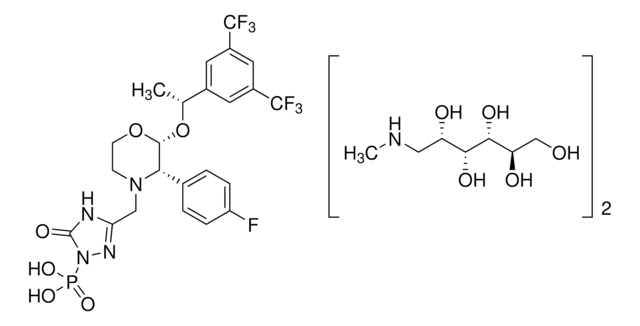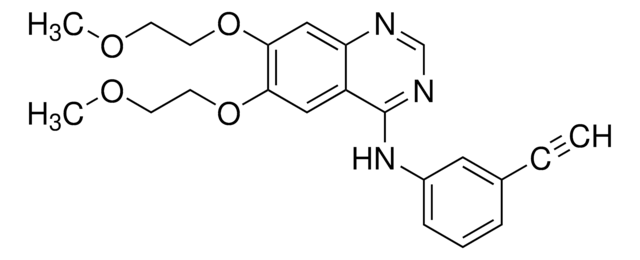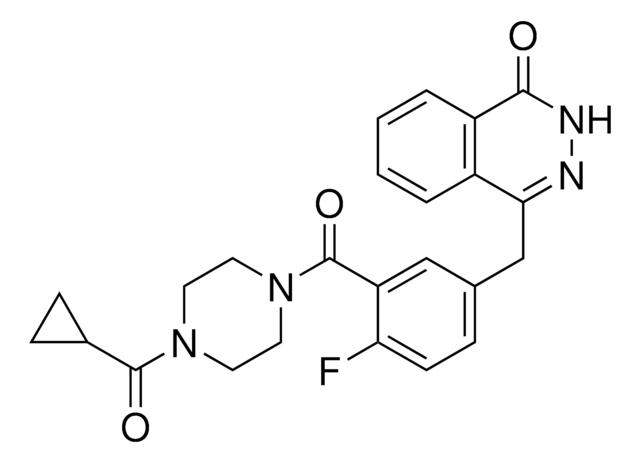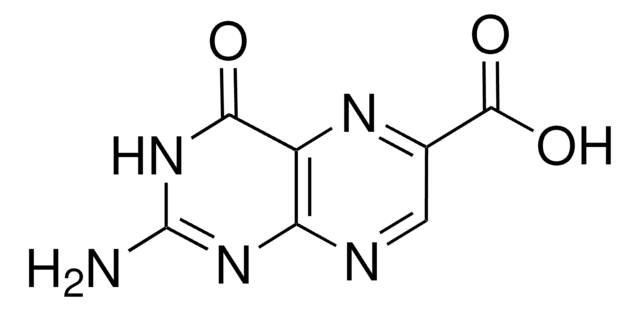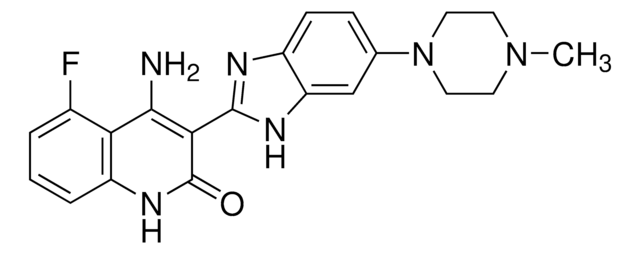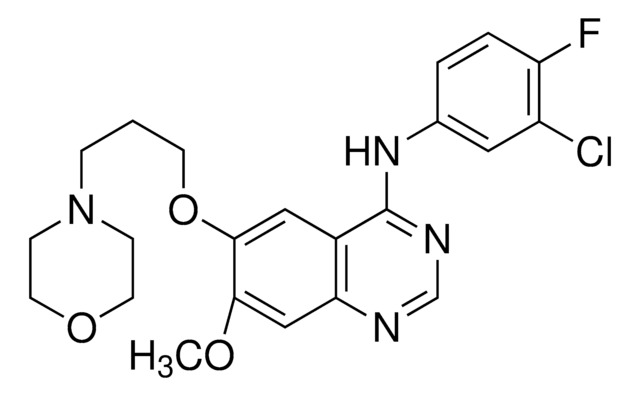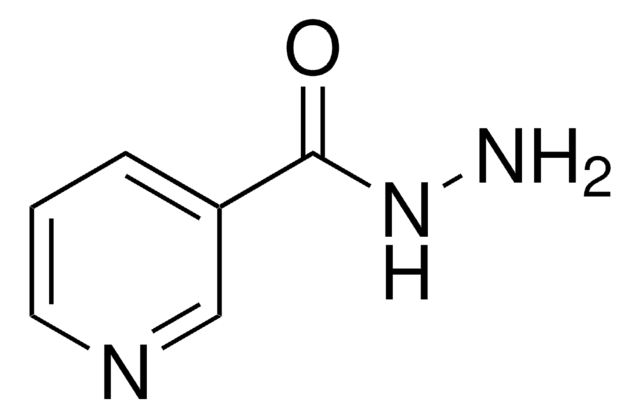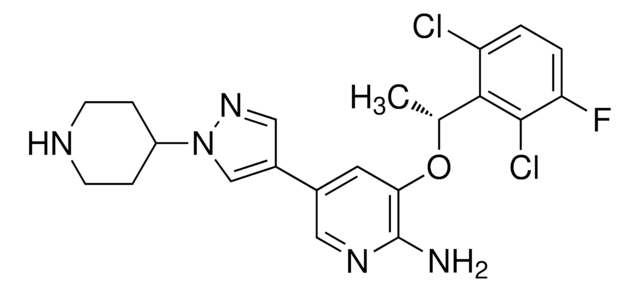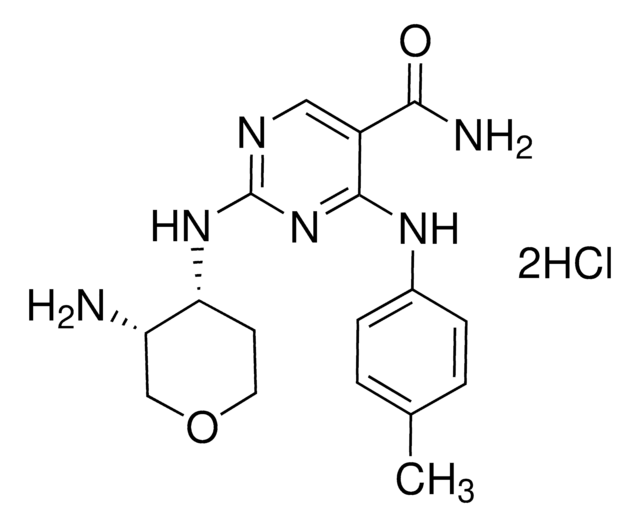SML2448
PK4C9
≥98% (HPLC)
Synonym(s):
Homocarbonyltopsentin, [2-[(6-Hydroxy-1H-indol-3-yl)carbonyl]-1H-imidazol-4-yl]-1H-indol-3-yl--methanone
Sign Into View Organizational & Contract Pricing
All Photos(1)
About This Item
Empirical Formula (Hill Notation):
C21H14N4O3
CAS Number:
Molecular Weight:
370.36
UNSPSC Code:
12352200
NACRES:
NA.77
Recommended Products
Assay
≥98% (HPLC)
form
powder
color
white to very dark brown
solubility
DMSO: 2 mg/mL, clear
storage temp.
2-8°C
Biochem/physiol Actions
PK4C9 is a splice modulator of survival of motor neuron gene SMN2 that increases production of full-length SMN protein. Spinal muscular atrophy (SMA) is a motor neuron disease caused by deficiency in SMN protein resulting from loss of expression of the SMN1 gene. The related SMN2 gene can compensate, but polymorphism in SMN2 often results in altered splicing and exclusion of exon 7, which is required for a full-length SMN transcript. PK4C9 binds to pentaloop conformations of the stem-loop RNA structure TSL2, a cis-regulatory element for E7 inclusion, and promotes a shift to triloop conformations that display enhanced E7 splicing. In SMA cells, PK4C9 increased E7 inclusion by 40% accompanied by a 1.5-fold increase in SMN protein, a level shown to reverse SMA phenotypes in mice models.
Storage Class Code
11 - Combustible Solids
WGK
WGK 3
Flash Point(F)
Not applicable
Flash Point(C)
Not applicable
Choose from one of the most recent versions:
Certificates of Analysis (COA)
Lot/Batch Number
Sorry, we don't have COAs for this product available online at this time.
If you need assistance, please contact Customer Support.
Already Own This Product?
Find documentation for the products that you have recently purchased in the Document Library.
Amparo Garcia-Lopez et al.
Nature communications, 9(1), 2032-2032 (2018-05-26)
Modification of SMN2 exon 7 (E7) splicing is a validated therapeutic strategy against spinal muscular atrophy (SMA). However, a target-based approach to identify small-molecule E7 splicing modifiers has not been attempted, which could reveal novel therapies with improved mechanistic insight.
Our team of scientists has experience in all areas of research including Life Science, Material Science, Chemical Synthesis, Chromatography, Analytical and many others.
Contact Technical Service